25 Trade Secrets Of Top OB/GYNs

What should you do if you have an abnormal Pap test? What's a great way to feel sexier in bed? How do you handle that one week of the month when you take on more water than the Titanic?
The doc who has the answers to all those questions is the one who knows you literally inside out: your ob-gyn. Unfortunately, most of us don't get enough time to ask everything we want to know during our once-a-year visit—a good portion of which is spent in a position that's not conducive to conversation. So we did the asking for you. (Similar to when we explained those strange symptoms you save for Google.)
Here's the best advice from 15 of the nation's sharpest experts. (Balance your hormones and lose up to 15 pounds in just 3 weeks with The Hormone Reset Diet.)
1. Abnormal Pap? Ask for this test.
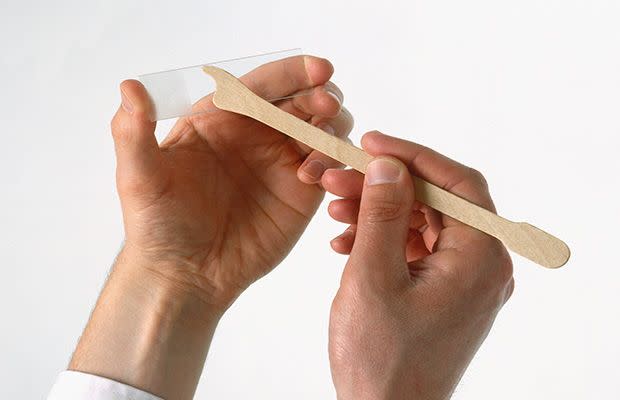
The sexually transmitted human papillomavirus (HPV) is the culprit in virtually all cases of cervical abnormalities and cervical cancer. So if your Pap is abnormal, ask your doc to check for HPV.
If you test negative for the virus, it's unlikely your abnormal Pap was due to anything serious, and there's no need for further testing, says Carolyn D. Runowicz, MD, a professor of obstetrics and gynecology and executive associate dean for academic affairs at Florida International University's Herbert Wertheim College of Medicine.
If you test positive, however, your doctor should follow up with a colposcopy, a procedure that involves looking at the cervix with a special magnifying scope and probably taking a small sample of tissue to biopsy. To date, there's no treatment for HPV, which often resolves on its own. Many of the abnormalities caused by the virus will clear up over time as well; your doctor should monitor them.
2. Avoid the unkindest cut.
Has your ob-gyn recommended a hysterectomy for your heavy bleeding problems? Don't sign the release form too quickly. "When it comes to reducing heavy abnormal bleeding, we have newer and less-invasive options available," says Andrew M. Kaunitz, MD, professor and chair of the department of obstetrics and gynecology at the University of Florida–Jacksonville's College of Medicine.
Ask your doctor about the latest in hormone therapies, technologically advanced outpatient procedures (one uses heat to destroy the lining of the uterus, the usual source of the bleeding), or how you can use birth control pills for continuous menstrual suppression.
3. Get emergency protection before the emergency.
The biggest mistake women make when it comes to emergency contraception: not having it at home. "It's not just for singles," says Sarah de la Torre, MD, an ob-gyn in Seattle. "Married women should keep it on hand, too."
Pills such as Preven EC and Plan B can cut your risk of unintended pregnancy by as much as 89% if taken in the first 72 hours after intercourse. (These pills don't terminate an existing pregnancy.) The sooner you take them, the more effective they are. Stash the pills in your medicine cabinet. (Most emergency contraceptives last a year or two.)
MORE: 5 Reasons It Hurts Down There
4. Pick the perfect birth control.
Newly single, travel a lot, hopelessly disorganized at home? Tell your doc about your lifestyle. It will help her advise you on the right birth control method for you.
"Choosing a contraceptive is a huge decision, and yet most women spend more time planning a week's vacation," says Donnica Moore, MD, founder of the women's health website DrDonnica.com. There are now more contraceptive choices than ever, so you can find your ideal match.
Want to be über-careful during your postdivorce dating? A condom paired with a diaphragm or cervical cap provides both birth control and protection against sexually transmitted diseases (STDs). Likely to misplace your contraceptives? Try the intrauterine device (IUD). It's good for up to 12 years (and, contrary to popular wisdom, doesn't cause infertility). The IUD is also a good choice for frequent business travelers or anyone who has a hard time remembering to take the Pill. Other matches for the girl on the go and the one who's forgetful: the patch (you wear it for a week at a time) and the vaginal ring (which you leave inserted for 3 weeks).
5. Learn the secret of the ouchless mammogram.
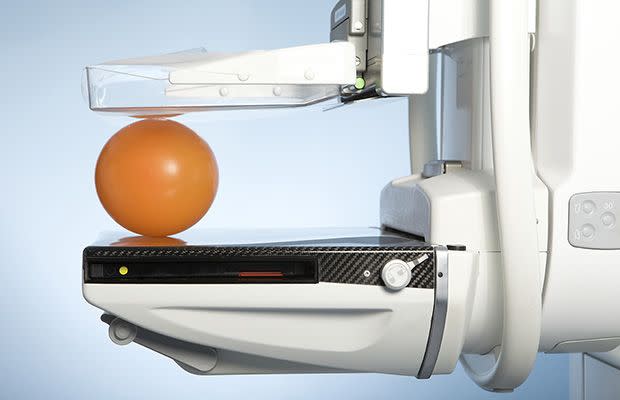
Having your breasts compressed for a mammogram—a necessary evil, since a flattened breast provides a clearer image—is no one's idea of comfortable. But you can take the sting out and even get a better image by scheduling your mammogram for the week after your period ends.
"Ideally, you should schedule it for the first or second day after," says Mitchell Essig, MD, an ob-gyn and clinical associate professor at New York University's Langone Medical Center. That's when the glands in your breasts are the least swollen and sore, and also least likely to obscure surrounding breast tissue. (Here are four ways to maximize your mammogram.)
6. Bail on the bloat.
If you're on the Pill, switching to the Yasmin brand can help reduce a menstrual potbelly caused by water retention, says Prevention advisor Mary Jane Minkin, MD, clinical professor of obstetrics and gynecology at Yale University School of Medicine. It contains a progestin, the synthetic form of the natural hormone progesterone, that acts as a diuretic.
De la Torre offers these additional fixes: Take vitamin B6; drink more water (it flushes you out); eat a diet rich in fiber, fruits (grapefruit is particularly good), and veggies (they keep things moving, too); stay away from salty foods (they make you retain fluid); limit caffeine; and exercise.
7. Don't supersize.
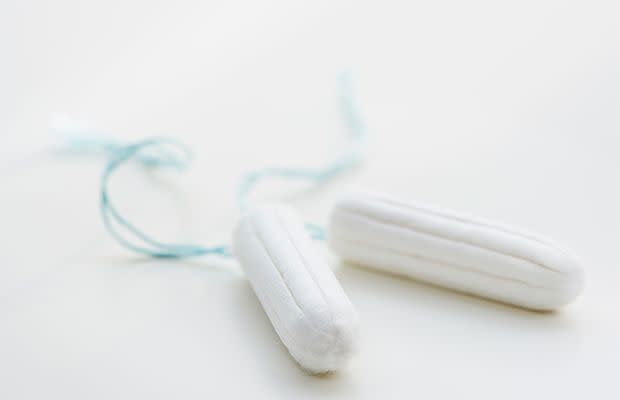
To avoid a urinary tract infection (UTI), use the lowest absorbency tampon possible. Jumbo tampons can obstruct the bladder and prevent it from emptying completely, says Minkin. (It's easier for bacteria to multiply when urine stays in the bladder for a long time.) Added risk: During your period, the warmth and moisture of blood provides a friendly environment for germs. (Got cramps? Here are four natural ways to ease even the worst symptoms.)
8. Give him time to recharge.
If you have a 28-day menstrual cycle and are trying to get pregnant, have sex on days 12 through 16 of your cycle (for a 32-day cycle, have sex on days 16 through 20; begin counting on the first day you get your period), but don't do it more than once a day, says Minkin. The 24-hour rest between the times you make love allows your man's sperm count to return to its normal level.
9. Want to conceive? Avoid these medications.

Taking any aspirin or nonsteroidal anti-inflammatory drugs such as ibuprofen and ketoprofen at midcycle can upset the timing of ovulation, so it's harder to know when you're most fertile. Instead, take acetaminophen-based pain relievers such as Tylenol, recommends Minkin.
MORE: 9 Highly Effective Solutions For Yeast Infections
10. Take it all off.
"Get into bed naked, with or without a partner," advises de la Torre. "You're under the covers so you're covered up, but bit by bit you're desensitizing yourself to being uncomfortable about being naked. Accepting your body is the easiest way to feel sexy, and confidence is the sexiest attribute." (In fact, your sexiest body is only six exercises away.)
11. Switch to the cap, reduce UTI risk.
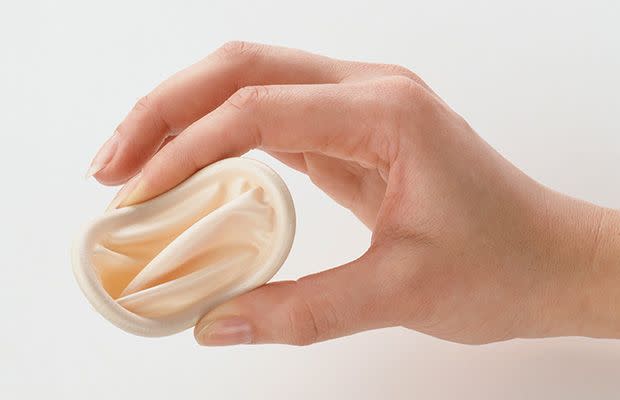
If your diaphragm is giving you recurring urinary tract infections, ask your ob-gyn about switching to the FDA-approved FemCap, a rubber barrier that fits snugly over the cervix. It's less effective than the diaphragm, but it's not as likely to cause a UTI. Diaphragms can press against the urethra, the tube that carries urine outside the body. That allows urine to pool in the bladder, which can lead to infection, says Minkin.
12. Rx for a sexy night.
"If you're self-conscious about normal vaginal odors and are planning a romantic night, try snacking on fruits such as pineapples and strawberries," advises Lisa Masterson, MD, an ob-gyn in Santa Monica, CA. "They'll sweeten your juices." If you're heading out for a cozy dinner, skip the blue cheese, garlic, and asparagus because they can cause off-putting vaginal odors. Not a fruit lover? Dab scented oil in the crease between your inner thighs and buttocks. Test for sensitivity by putting a dot of oil under your arm first. (To really up the ante, cook these get-sexy recipes.)
13. For pain-free nursing, get a grip.
The classic breastfeeding pose—baby's head nestled in the crook of mom's arm—is idyllic but far from ideal, at least for beginners, says Deborah Hubbard, a lactation specialist at the University of Iowa Hospitals and Clinics in Iowa City. Why? It's hard to control baby's head with the crook of your arm. And having adequate control of her head is key to getting her latched on to the breast properly, with her mouth covering most of the areola. Poor positioning is a leading cause of nipple soreness. While sitting, try these holds, which put baby's neck and lower head in your hand, to increase your comfort.
Cross cradle: Place your baby on her side, across your stomach, on a pillow, with her lower arm around your side. To nurse on your left breast, your right hand supports baby's neck and lower head, and your left thumb and index finger are at a 9 and 3 o'clock position on the breast. Wait for baby to open wide when she yawns or cries, and bring her to your breast. Reverse for right breast.
Football hold: Place your baby on her back at your side, on a pillow. To nurse with your right breast, your right hand supports her neck and lower head, your left thumb is on top of the breast, and your fingers are underneath the breast. Wait for baby to open wide, and bring her to your breast. Reverse for left breast. (This is especially good for C-section moms because it keeps the baby off the sensitive abdominal incision.)
14. Get a good read—or two.

Getting the right person to read your mammogram is as important as getting a good image. Studies show that practice makes closer to perfect, so ask to have yours read by a radiologist who reads nothing, or almost nothing, but mammograms, Runowicz says. If your films turn up anything out of the ordinary, get a second opinion: Ask for a copy of the films, bring them to your primary care doc or ob-gyn, and ask to have them reviewed by a second radiologist at a different mammography center. (Bad diagnosis? Here's how to deal.)
MORE: What The Color Of Your Pee Says About Your Health
15. Don't wait to exhale.
If it's hot in here and it's you, try a special kind of deep-breathing exercise called paced respiration; studies show it can cool a hot flash in minutes. But you have to practice the technique a few times before you get good enough to lower your thermostat.
Find a quiet, comfortable place where you won't be distracted, and sit comfortably. Breathe from deep inside your abdomen while slowing your breaths to 5 to 6 times a minute (normal is 10 to 15 breaths per minute). Practice breathing in for 5 seconds and breathing out for 5 seconds to get the timing right. Do this for 15 minutes every day. When you feel a hot flash coming on, try slowing your breathing to help cool off.
16. Relax as they wheel you in.
If you're having gynecologic surgery, download a guided imagery program on your iPod or phone. Listening to a program designed for surgery and recovery for 15 minutes before you go under anesthesia can decrease nausea, vomiting, blood loss, and the time you have to spend in the hospital, says Tracy Gaudet, MD, director of patient-centered care at the Veterans Health Administration and coauthor of Consciously Female. And you can take that easy listening a step further: "Most surgeons and anesthesiologists are very comfortable with patients having headsets on during surgery," she says.
Our top docs recommend these relaxation tapes: Successful Surgery by Belleruth Naparstek and Successful Surgery and Recovery by Emmett Miller.
17. Nothing down there for 48 hours before your Pap.
Skip sex, douches, and tampons during the 2 days preceding your Pap test. All three can abrade the cervix, and that can make it tough for your doc to get a representative sample of cells to check for any precancerous changes, explains Ellen Sheets, MD, former vice president of clinical affairs at Cytyc, the company that developed the widely used ThinPrep Pap test.
Though you should bathe the morning of your exam, don't try out a new body wash; it could irritate your vaginal area, upset your pH balance, and potentially skew your results. And a strong body-wash scent could cover up problems your doc needs to know about. "You want your doctor to have a look at the reality," says James A. Simon, MD, a clinical professor of obstetrics and gynecology at George Washington University School of Medicine in Washington, DC. He needs to see, feel, and smell (yes, smell) for potential problems.
18. Second-guess the home pregnancy test.
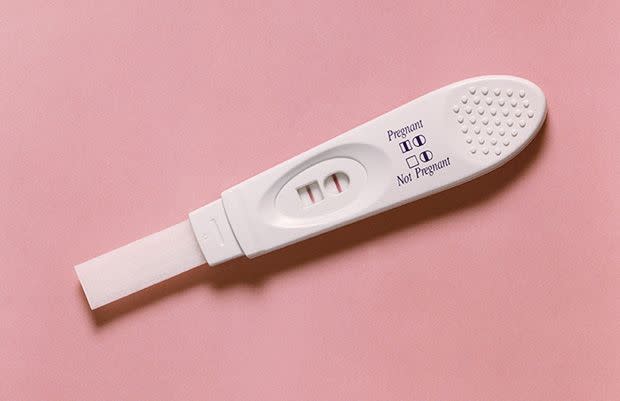
Despite claims, most home pregnancy tests can't detect a pregnancy as early as the first day of a missed period. (In one study of 18 different brands, First Response was the only one that was accurate that early.) If your home test results come back negative, retake the test a week later to double-check.
Just can't wait? See a doc for a blood test, which can tell you if you're pregnant the very first day your period was due, says Marian Damewood, MD, chair of obstetrics and gynecology at WellSpan Health.
19. Stem the flow.

If you have heavy menstrual bleeding, consider higher-dose oral contraceptives. Low-dose pills—those with 20 micrograms (mcg) of estrogen—don't control your period as well as the higher-dose ones, says Minkin.
20. Tell the truth.
Most docs don't automatically test you for STDs. So if you want to protect your fertility (and your life), you have to volunteer the number of partners you've had and how often you've had unprotected sex. The more partners, the more you're at risk of a host of dangerous diseases, such as HIV, genital herpes, hepatitis B, HPV, and chlamydia (untreated, it can cause infertility).
21. Fight off fibroids.
Uterine fibroids are not only painful, but for some women, they can also make it difficult to conceive and can threaten existing pregnancies. One way to ward them off is to lose weight. Fat tissue produces the estrogen that feeds fibroids, so if you're overweight, they're more likely to grow, says Minkin.
MORE: Try A New Sex Position Tonight
22. Don't be sore.
Pain or rawness during intercourse or a burning sensation when you insert a tampon is a sign you may have an often-overlooked condition called vulvar vestibulitis, an inflammation of the skin and glands of the vulva (which includes your labia and clitoris).
"There are women out there thinking that pain with intercourse is just part of living. If it hurts, you need to see a doctor," says Elizabeth Gunther Stewart, MD, director of the vulvovaginal specialty service at Harvard Vanguard Medical Associates in Massachusetts. The cause of vulvar vestibulitis isn't known and there is no cure, but once you're diagnosed, your doc can offer a wide variety of pain-relief options.
23. Birth control with baby in mind.
Fertility can return almost immediately after you go off the Pill or patch, but it can take 3 months to a year to come back after using a hormonal IUD, and 10 months or more to rebound after your final Depo-Provera injection. If you're planning to eventually have a baby, talk to your doctor about a plan that gives you maximum protection now and optimal fertility later. (You can find out if your state is fertility friendly here.)
24. Depressed? Check your pill.
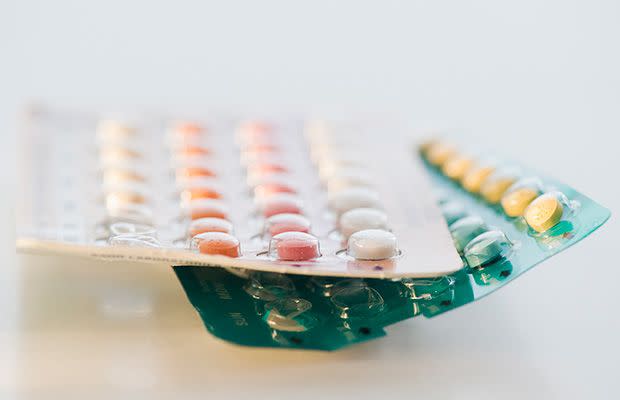
If your mood is crashing, it could be your birth control pills. Depression can be a side effect of the synthetic progestin in oral contraceptives, especially for women with severe premenstrual symptoms, those who've had postpartum depression, or those 35 and older, says Diana Dell, MD, an assistant professor of obstetrics and gynecology at Duke University Medical Center. The fix: You can stay on the Pill if you switch to the contraceptives Yasmin or Mircette, which have different progestins and less of a depressive effect.
25. Wristbands for morning sickness.
Strapping on seasickness wristbands such as Sea-Band, which applies acupressure (acupuncture without needles), or Relief Band, which emits gentle electrical signals, could help reduce the nausea, says Suzanne Merrill-Nach, MD, a San Diego ob-gyn. Some of her patients have also had success with this low-cost method: Tape a small, uncooked bean to the wrist pressure-point area with a Band-Aid.
You Might Also Like

